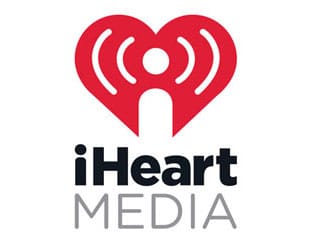RBR-TVBR Analysis:
The 111th Congress was supposed to be the dream Congress for RIAA. Democrats controlled both the House and Senate by substantial margins, long-time allies of the record industry headed the Judiciary Committees on both sides, and a Democrat was in the White House.
RIAA believed that Democrats were overwhelmingly friendly to the idea of “fairness” to artists in requiring radio stations to pay performance royalties, just as Internet streaming radio has been forced to do for over a decade. What caught RIAA off guard was that some of those it had counted on to be willing supporters turned out to be some of its toughest opponents on Capitol Hill. That’s because black and Hispanic broadcasters took the point for the radio industry and detailed how the proposed Performance Rights Act would put many minority broadcasters out of business – further worsening the lack of diversity in media ownership that liberals have complained of for decades. Radio One, in particular, turned up the heat on black congressmen, using its stations in Detroit and Atlanta for company chair Cathy Hughes to berate Rep. John Conyers (D-MI) – Chairman of the House Judiciary Committee and chief sponsor of PRA – and committee member Rep. Hank Johnson (D-GA) for trying to kill black radio.
The result was an unlikely pairing of liberal black Rep. Maxine Waters (D-CA) and conservative white Rep. Dan Lungren (R-CA) as opponents of PRA in the House Judiciary Committee, which Waters noted was the first time she and Lungren had ever agreed on anything. PRA was eventually passed by both the House and Senate committees, but not with the overwhelming support that RIAA had counted on. (After all, both panels are packed with members from both parties whose constituencies have heavy involvement in the entertainment industry.)
Meanwhile, NAB under former CEO David Rehr and current head honcho ex-Sen. Gordon Smith worked The Hill to get Members of Congress to sign onto a resolution opposing any new performance fees for radio stations. A majority of the House members put their names to the document and a substantial number of Senators. Even so, the PRA is not dead. RIAA’s backers, including not just Conyers and Howard Berman (D-CA) in the House, but Senate Judiciary Committee Chairman Patrick Leahy (D-VT) and member Orin Hatch (R-UT), himself a recording artist, have been looking for a way to get PRA enacted into law, perhaps by attaching it to some other must-pass legislation.
NAB lobbyists and allies have, of course, been on the alert to prevent any such shenanigans. But there are still fears of what might happen as RIAA pulls out all of the stops to get PRA passed before the 112th Congress, almost certain to be less to its liking, is seated in January.
But one does not ignore Members of Congress and expect to have success in Washington. NAB has been under pressure from various lawmakers to try to negotiate a settlement with RIAA. To that end, some hush-hush meetings have taken place, with the NAB side reportedly represented by Smith, NAB Joint Board Chairman Steve Newberry, CEO of Commonwealth Broadcasting, a small market radio group; Charles Warfield, President of ICBC Holdings, a large market Urban radio group, and until quite recently NAB Radio Board Chairman; and previous Joint Board Chairman Bruce Reese, CEO of Bonneville International, which owns mostly large market radio stations. What those negotiations have yielded will be the mystery to be unveiled at Friday’s unusual special meeting of the NAB Radio Board. Whether the other members will find the effort to be worth continuing is the big issue. There are certainly skeptics, but no one we’ve heard from is ruling out any possibility of reaching a settlement.
What might radio stations get out of such a deal with RIAA and its congressional boosters?
Speculation has centered on things like the inclusion of FM on mobile phones, which would require bringing a third industry into the debate; or cutting broadcasters a break on internet streaming fees.
Some sort of revenue-neutral arrangement could possibly meet with acceptance, although it’s difficult to imagine just what such a deal might be – money for a performance royalty would have to come from somewhere, and such a proposal would be sure to meet with stiff resistance from the residents of “somewhere” currently collecting that revenue.
RBR-TVBR observation: Despite fears in some quarters that radio is being railroaded into a bad deal, there is no way this can be forced through with just a majority vote of the Radio Board. It will take a broad consensus of radio owners to move forward. Otherwise the industry would be ripped apart and NAB would not really be representing everyone in the negotiations. It is possible that an acceptable deal could be worked out with RIAA, although it is hard to imagine what that would be. There is certainly a lot of skepticism among the Radio Board members going into the Friday 8/6/10 meeting, so it would have to be a truly groundbreaking proposal to win the necessary widespread support to move forward.
Update: Friday, 8/6/10, 3:30pm ET Breaking: NAB Radio Board meeting outlines PRA talks
RBR-TVBR request: Get involved it is your business. What’s your take? RBR-TVBR wants to hear from the radio industry. What do you think of the NAB negotiations with the record labels? Feel free to post a brief comment below and/or send us your thoughts for publication to [email protected]. Please include your name, title and company affiliation.




